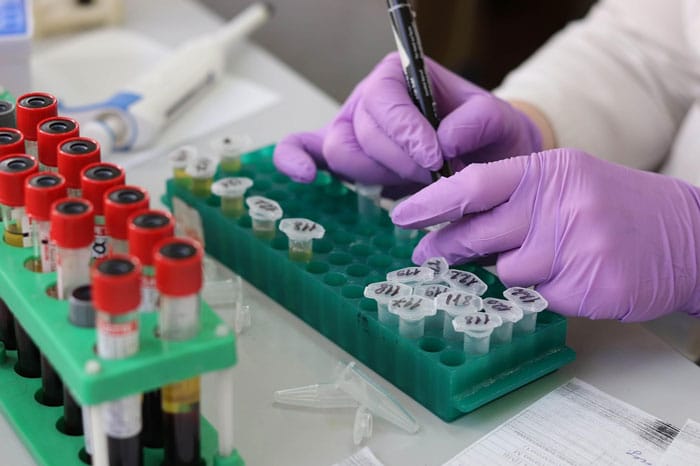
To become a forensic science technician offers the opportunity to be part of those who help to bring criminals to justice.
Who is a Forensic Science Technician?
A forensic science technician is an expert trained to assist in crime investigation by analyzing physical evidence either on the crime scene or in the lab, operating a fulltime work schedule often demanding extended hours of work and movement to crime scenes.
Educational Requirements and Training
To become a forensic science technician, a Bachelor’s degree and lots of experience in the natural sciences is needed; fields like chemistry, biology, and forensic science help prepare you for a career in forensic science.
Certain institutions offer forensic science as a discipline, most others offer it as an aspect of another disciplines.
According to the American Association of Forensic Science (AASF), it is important to be exposed to courses with a lot of math and at least 24 units of chemistry and biology.
In addition to that, exposure to courses in criminal justice, criminal law, forensic archaeology and statistics may prove to be invaluable within the career.
A Master’s degree may be needed to advance in the career, and often is associated with a chosen path.
According to the American Society of Crime Laboratory Directors (ASCLD), the best training for a forensic science career can be gotten from a background of science with extensive laboratory work.
Degree types that exist in forensic science include:
- Bachelor of Science in Forensic Science: Traditional Bachelor’s degree certificate with an intense focus on forensic science
- Master of Science in Forensic Science: An advanced certificate in forensic science; although a bachelor’s degree may not be needed to qualify
- Certificate in Forensic Science: General certificate that gets you ready to work in a forensic lab
- Certificate in Forensic DNA: For those who have learnt about collecting and analyzing DNA samples.
Forensic Science Technician Certifications
Certification is accredited for forensic science by the Forensic Science Education Programs Accreditation Commission (FEPAC).
The American Board of Criminalists (ABC) offers voluntary certification to forensic science technicians who possess at least two years working experience.
Two levels of certification exist for forensic science technicians; fellow and diplomate; each certification requiring applicants to pass a three hour test.
Others include the American Board of Forensic Anthropologists (ABFA) and the International Board of Forensic Engineering Sciences.
Institutions and Schools for Forensic Science Technician Training
A number of institutions offer both Bachelor’s degree and Master’s degree program in forensic science, although the natural sciences like Biology and Chemistry are commonly offered programs by most institutions.
Some other institutions are also likely to offer courses closely related to the field of forensic science. Such schools include:
- Kaplan University – offers course in forensic psychology; covers the use of psychology in law enforcement and crisis intervention.
- Liberty University, an online institution that offers Bachelors degree in both forensic science and crime scene investigation
- SaintLeo University – offers a one to two years post graduate in forensic science.
Roles, Duties, and Responsibilities of Forensic Science Technicians
Basically, a forensic science technician performs the following role, duties, and responsibilities in his/her daily work activities:
- Analyze crime scenes to determine what can be classified as evidence and the best ways to obtain them
- Acquire pictures of the crime scene
- Make sketches of the scene of the crime
- Record location and position of evidence, as well as other findings
- Explore possible links to the crime in the lab
- Consult with experts on issues pertaining to solving the crime.
Forensic Science Technician Skills
Forensic science technicians may either perform all the roles listed above or specialize in various techniques.
Those who practice generalist forensic sciences are referred to as criminalists’ or crime scene investigators; they collect evidence from the crime scene and perform analysis in the lab.
Those who work in the lab may decide to specialize in areas such as forensic pathology or as latent print examiners who technically use chemicals and other lab equipment for analysis.
People are not the only evidence forensic science technicians examine; vehicles and weapons can be part of what they run analysis on.
Some other forensic technicians may also decide to have specialties relating to computer crime.
As forensic science technicians prepare reports about their findings, they must be able to present them without ambiguity. Added skills in the areas of analytical thinking, emotional control, ability to work individually or as part of a team will be of value.
Generally, the skills are grouped into those needed on the field, in the lab, and those needed to present findings.
Career Opportunities As Forensic Science Technician
A number of career paths exist for forensic science technicians, and they include evidence technicians, criminalists, crime scene investigators, and finger print examiners.
Forensic science technicians can be hired by law enforcements, forensic labs, academic institutions, and the government, and can undergo further training to suite the specialty they will be assigned to.
Salary Expectation for Forensic Science Technicians
According to the Bureau for Labor Statistics, a forensic science technician median annual salary is about $55,000 at its highest and $33, 000 at its lowest.
Conclusion
This post has provided a detailed guide on how to become a forensic science technician, including the educational requirements and certification you need to work as one.
individuals interested in choosing the forensic science technician career will find this post helpful in improving their knowledge of the profession.




